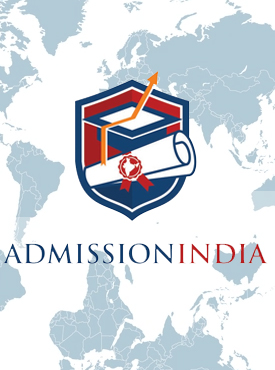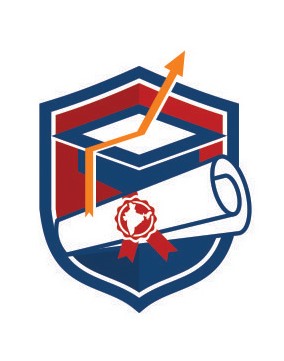Canada is considered one of the best destinations for overseas education. The education system offers world-class faculty and excellent learning opportunities making it globally competitive. A university degree from any of the institutions is internationally recognised. Canada's focus on quality education means that students enjoy excellent career potential. The education system encourages students to pursue interdisciplinary learning while providing the best technological means of obtaining a quality education.
LIFE IN THE COUNTRY
Canada is an open, safe and culturally diverse country. Although famous for its passion for ice hockey, the country has much more to it than just sports. From stunning architecture and art to exciting theatre, world-famous celebrity festivals, and much more, Canada is a vibrant place with endless entertainment. Canadian cuisine is also very diverse, meaning everyone can find something to suit their taste.
Regarding the weather, Canada's climate is as diverse as its people's. For example, Canada's most populous region, the southern region along the US border, sees four distinct seasons a year, each with unique beauties.
- Summer opens the way to adventures like boating, camping, and bonfires because of the season's great weather.
- Fall opens the way to the mesmerising countryside that allows hiking on mountains and into the woods.
- Winter is the season of a lot of fun in the snow. Skiing, snowman making, snowball fights, and more can be experienced this time of year.
- Spring is the blooming time for flowers and the reunion of the birds.
Most importantly, International students who study in Canada benefit from the same rights and freedoms that protect all Canadian citizens, which include respect for human rights, equality, diversity and a stable, peaceful society.
Attitude and etiquette of the local people
Canada is a vast country with diverse people, landscapes and climates. Because of this, the Canadian way of life varies from person to person.
Canadians share important values such as pride, a belief in equality and diversity and respect for all people. These values distinguish Canada as a friendly, peace-loving and safe place to live. Canadians are known to be hardworking. They never neglect personal matters and encourage young people to open up. Religion is free to express but often avoided in public discussions like politics and money. Bad table manners should always be avoided, and punctuality to meetings and appointments should never be taken lightly.
Lastly, a clean and neat appearance with appropriately sized clothes, polished shoes and appropriate attire for various occasions is a plus for Canadians. In addition, being well-groomed and making eye contact when conversing with others is crucial. In Canada, a strong demeanour, a smile when meeting people, and thoughtful language are highly valued as a sign of positivity and respect.
Language
Since most Canadians are of European descent, from early French and British Colonists, Canada has two official languages; English and French. About 59% of Canadians have English as their first language, and about 23% have French as their first language. In addition, 18% of Canadians have more than one native language other than English or French. Canada's federal agencies reflect the equality of the two official languages by offering bilingual services. Other languages spoken in Canada include Chinese, Punjabi, Spanish, Arabic and Tagalog. Canada is also home to a sizeable Aboriginal population of Inuit and Metis, and the most common Aboriginal languages are Cree, Inuktitut and Inu/Montane.
TOP UNIVERSITIES IN CANADA WITH VARIED COURSE OPTIONS
Canadian universities offer programs in various subjects and specialities, including engineering, medicine, management, agriculture, finance, business, physical education, arts and sciences. While enjoying a high standard of living, the cost of studying in Canada is comparatively lower than those of other English-speaking countries like Australia, the UK and the United States.
QS World University Rankings annually lists the world's best universities. In 2022, several Canadian institutions featured amongst the top 250 universities globally; some of these top-ranked universities included:
- University of Toronto
- McGill University
- University of British Colombia
- Universite de Montreal
- University of Alberta
- York University
- Queen's University
- University of Western Ontario
- McMaster University
- University of Waterloo
- University of Ottawa
- University of Calgary
PART-TIME AND POST-STUDY WORK OPPORTUNITIES
In Canada, many programs offer students internships to gain hands-on experience; international students are also eligible to work while in school and can obtain a postgraduate work permit afterwards.
The available job options for students while studying are:
- On-campus work – Students may work on the school campus if the school has many campuses. Working in a library, hospital, or research centre that has certain connections with the university may be granted to students if they are assistants or researchers in that particular university.
- Off-campus work – The working hours for international students are 20 hours during academic sessions. After completing a degree, they may be eligible to apply for a work permit and can work full-time during holidays.
- Co-op placements – students will be able to apply for a co-op permit if they possess a valid study permit integrated work into the academic program, have evidence writing from the school that states the need to finish work placements for the degree and 50% or less of the total study program in the internship. However, students undertaking second language studies for English or French or general interest courses alongside a different program will not be eligible to apply for the permit.
- Internship – This training program will help students attain skills in the workplace, which will be directed and administered by someone in the workplace.
Post-graduate work permit
The Post-graduate Work Permit program allows students who have graduated from eligible Canadian institutions to obtain an open work permit to gain valuable Canadian work experience. A post-graduate work permit may be issued based on the length of the study program for a minimum of 8 months to a maximum of 3 years. The work experience from Canada will enable permanent residency through Express Entry. Express Entry is the initiative for immigration in Canada as an employer. The federal government welcomes the chief applicants for residency.
ROUTES TO PERMANENT SETTLEMENT
- Extending a study permit – to extend a study permit, students must also extend the validity of their passports and ensure that this is done 30 days before the current permit's expiration.
- Apply to change student's status and stay in Canada as a visitor – After graduating, a visitor visa will be needed if a student does not possess a work permit.
- Renewing a temporary resident visa (TRV) – This visa is an official document that will show evidence that the temporary resident conditions are satisfied. International students will have a study permit. This permit also lets residents live with their spouses and children in Canada.
- Applying for permanent resident status – Applying for this will allow the applicant to remain a citizen of their country of birth and Canada after completing their immigration process.
- The rights of permanent residents: Canadian law and the Canadian Charter of Rights and Freedoms will protect applicants after completing the Canadian citizenship application. Social benefits like free health care and the freedom of employment, residency, and education anywhere in Canada will be available. Voting or running a political office and holding high-level security clearance jobs will not be allowed.
- Residency requirements in Canada: Once granted a permanent residency, the applicant must stay in Canada for at least 2 out of 5 years.





